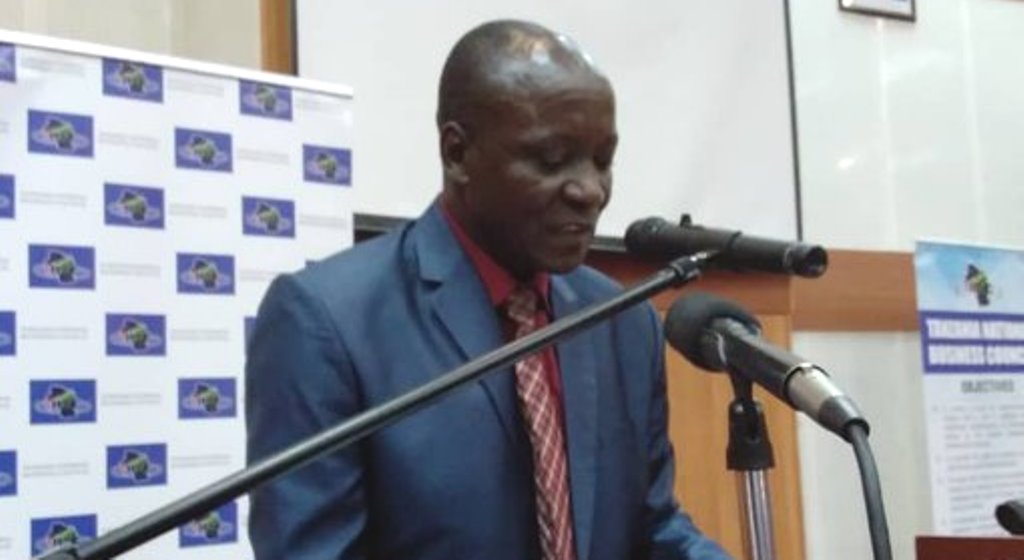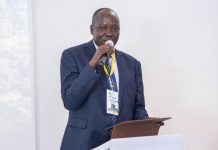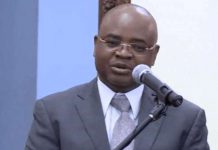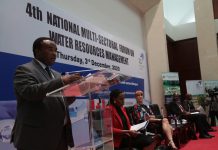AfricaPress-Tanzania: THE private sector has been urged to hold a dialogue with the public sector for a dialogue aimed at striking a consensus and helping the government make proper decisions to improve the country’s business environment.
Tanzania National Business Council (TNBC), Executive Secretary, Dr Godwill Wanga, said this during the launch by the Research on Poverty Alleviation of a report entitled ‘The Business Climate Survey for Nordic Companies in Tanzania 2019’ in Dar es Salaam yesterday.
He said the government no longer issued directives but was instead was ready to hold dialogues with all stakeholders and reach consensus.
“What is important is for the private sector to come up with findings and facts for dialogue to be successful.”
“Our interaction with the private sector is in dialogue and TNBC is among the bodies mandated to coordinate dialogues at all levels. Cooperatives, individuals, vendors and everyone in the private sector is invited to dialogue with the government. Doing this will build trust,” he reiterated.
“Through such dialogues the private sector is invited to come up with ideas and solutions and reaching resolutions through consensus,” he elaborated.
Repoa’s report shows that despite a slow pace of reforms, investors are maintaining a positive future outlook.
It highlights challenges faced by Nordic firms in aspects like immigration and labor systems, tax regime and availability of specialist competence.
Responding to some of the issues articulated in the report, Dr Wanga said the government had taken bold measures when it came to labor issues, including issuance of permits.
“The country’s laws allow foreigners to work in the country while ensuring that a person who applies for a permit qualifies for having a rare profession, which does not compete with local people,” he explained.
“We would not like a situation where citizens are denied jobs they deserve. We respect the skills and abilities of the western world and other countries, but it is imperative to make sure that the imported profession is rare.”
He recalled that by February this year, of the more than 6,600 permit applications that were submitted, only 15 percent (less than 1,000) of the number were rejected.
Reasons for rejection of permits included failure to comply with conditions, including aspects like fraud, misrepresentation and the history of criminal practice, noted Dr Wanga.
All findings of the report will be taken into consideration and implemented, he pledged, while commending efforts put into compiling the report.
He further pointed out that such reports and studies should also capture the reforms made or were being undertaken by the government.
“All research activities and works done by scholars and think tanks like Repoa should capture all the government reforms,” he said, indicating what had been done and what was in the process in terms of addressing issues and their impact.
This, he said, would add more value for future development.
The Repoa Executive Director, Dr Donald Mmari, commented that efforts to improve the business environment needs to go hand in hand with improving public-private dialogue built on mutual trust.
“Repoa believes that the private sector is the engine of growth, and under the fifth phase government, we have seen many reforms focusing on improving the business environment, but more needs to be done,” he further remarked.
The event was graced by Swedish Ambassador to Tanzania, Anders Sjoberg, also representing the ambassadors of Norway, Finland and Denmark, who said that the Nordic investors were ready to cooperate with the government, to enable it achieve the 2025 vision of becoming a middle income country.
European Union Business Group (EUBG) Chairman Mr Jesper Sorensen, said that as investors, they were willing and ready to invest in the country as it had great potential.







